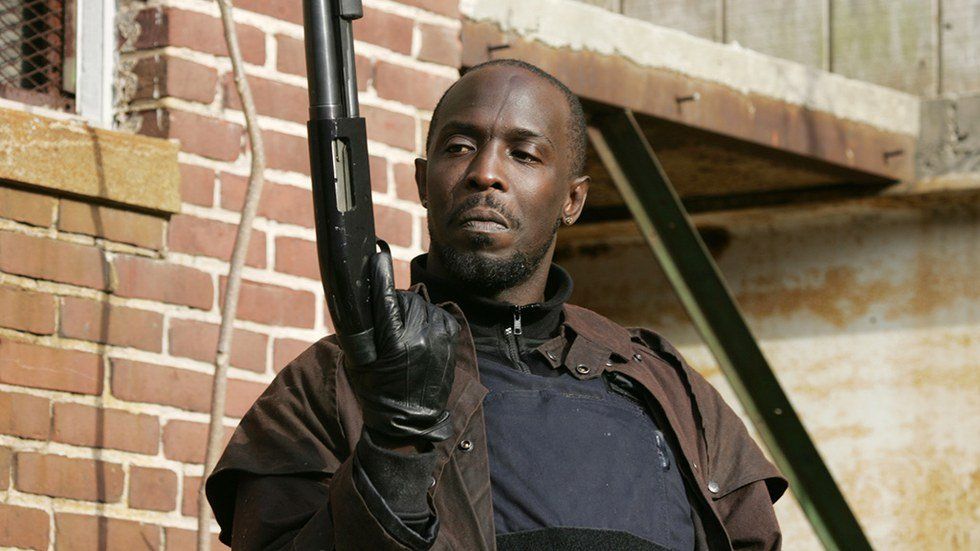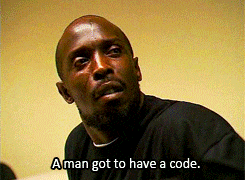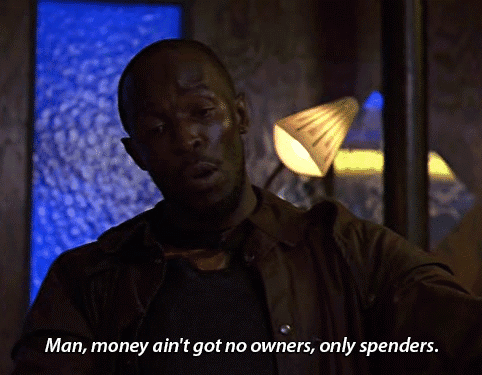HBO’s "The Wire" is considered by many to be the greatest television series of all-time. The brainchild of author and journalist David Simon, the show depicted Baltimore from all walks of life.
Excellent casting and writing provided viewers with a bevy of relatable characters, each with their own story. Key players like Avon Barksdale, Marlo Stanfield and Jimmy McNulty have become immortalized, but it is Omar Little that steals the show (no pun intended).
The depiction of a homosexual stick-up kid respected by all in the bowels of the underworld was a culture shock to viewers when "The Wire" debuted in 2002. Not only did Omar have the audacity to be an openly gay man in the heart of West Baltimore, but he did it toting a 12-gauge shotgun. It's amusing watching one man cause such chaos, disturbing the peace by simply walking the neighborhood, sending everyone fleeing for safety. Omar is a Robin Hood of sorts, stealing from the “rich” – the undeserving souls making a killing peddling crack and heroin. Omar is willing to die for what he believes, and isn’t afraid to let anyone know how he feels.
Omar’s moral compass is a walking contradiction, and that’s what makes his character so interesting. He will rob and kill those who are “in the game” no matter the age or sex, but won’t harm innocent bystanders. In the midst of a full-fledged war, he finds it disrespectful to attempt to assassinate him on a Sunday. It’s just the way he is, and it adds to his appeal.
Dressed in all-black with his weapon of choice visible through his knee-length pea coat, Omar is about business. The scar that he bears from the tip of his forehead to his right cheek looks like the work of a great makeup artist. But it is very real, the result of an altercation when Williams was sliced outside a party on his 25th birthday. From the cornrowed hair to the baggy clothing drooping off his frame, Omar looks the part. Primarily walking the streets with a menacing snarl, it’s Omar’s smile in the tensest moments that add edge to his character.
Aside from his itchy trigger finger, the most noteworthy aspect of Omar’s character is his dialogue. In a series renowned for it’s one-liners, it’s Omar who consistently delivers the notable quote-worthy tidbits.
Lines like “It’s all in the game yo”, “Come at the king, you best not miss” and “Money ain’t got no owners, only spenders” have been etched in television history. Omar speaks in broken English, a combination of sarcasm and wit delivered in the third person. His street acumen is a necessity for daily survival, and it’s just as deadly as his gun. It gets to a point where you wonder what gems Omar will drop next, life lessons in the form of typical dialogue.
As art often imitates reality, characters in the series ultimately die, and Omar’s death is one of the most controversial. After proving himself against tested soldiers, often outnumbered, Omar is ultimately gunned down by Kenard. Merely a child, Kenard sees an opportunity to earn stripes in an element where respect is everything. While his ultimate demise after so much character development may seem underwhelming to some, it serves as a harsh reality in the lifestyle. The uncanny death of such a pivotal character to the series only adds to his legend.
While the series delves into topics like politics and education, the action on the street is the main draw of the show. Omar lives on his own terms, defying the unwritten laws of the streets at his will. Outmanned, misunderstood, and unappreciated, it’s easy to find traits in Omar that you can relate to. While many may not agree with his lifestyle, it doesn’t matter, he just wants to survive.























